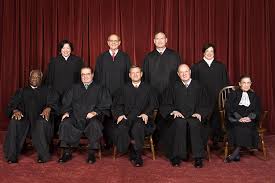Pro-choice voters are understandably aghast at the Supreme Court’s decision in Hobby Lobby. They cannot fathom how the justices would deprive workers the right to seek medical attention from licensed medical practitioners for procedures that are protected by the US Constitution and approved by the Court. However reprehensible the justices’ decision, it does enjoy legal precedent. That precedent is grounded in the legal separation of private enterprise from public policy. In short, the public cannot compel a private enterprise — a private household — to act in a manner if failure to act in that manner does not break the law. However, only if the United States required or forbid sexual reproduction could the Court compel individuals to use birth control or not use birth control. Since it has done neither, it is within the right of a private individual to forbid the use of birth control in their own home, i.e., their private enterprise.

The question therefore revolves around whether a private business is an extension of the private household. Or is the private enterprise instead an extension of the public sphere?
Up through the 1910s and arguably through the 1920s, the Court consistently held that the private enterprise was an extension of the household. This was the basis for the justices’ refusal to issue rulings abolishing child labor. It was also the basis for the justices’ refusal to issue rulings abolishing sex, race, religious, ethnic, and other forms of discrimination in private businesses. The same legal justification was advanced to prevent public school integration. Since the local public school is an extension of the private households in any school district, and since any of these households has the right to refuse any person entry into his or her private household, it stands to reason that a local public school can refuse entry to any person seeking entry. This legal argument failed because in the court’s opinion, the public school is, well — a public institution. And, yet, clearly, even today and increasingly, private households exercise tremendous power over the shape of their public schools — to the extreme detriment of students and of the public at large I believe.
This separation of public from private is crucial. It forms one of the critical underlying legal arguments in our campaign to keep the public out of our bedrooms, out of our email, and off our private internet connections.
So the main issue here is whether a private enterprise — an oikonomia — can be exempted from having to comply with clearly articulated and established public policy, such as a family’s right to exercise reproductive choice. Curiously, the US has already ruled on this matter and its ruling is at odds with the recent spate of rulings by the current Supreme Court. Time and again, the court has ruled that the State holds a monopoly on issuing, withholding, and annulling papers of incorporation, depending on whether the parties seeking to incorporate serve or do not serve the public interest. Indeed, public interest forms the legal foundation for issuing or withholding papers of incorporation. Thus, at least in this respect, the US has held that private enterprises must comply with public policy. And, in fact, such is the very legal foundation for the enforcement of worker safety, minimum wage, anti-discrimination law, child labor law, and so on.
In Hobby Lobby, the Court has not simply ruled on contraception. It has, in effect, issued a ruling that may well impact business law cases extending as far back as 1865, when the Confederacy declared its allegiance to the inviolability of the private enterprise. But why stop there? For clearly the conflict between the federalists and anti-federalists in 1787, which the federalists won outright by creating a strong federal government in the US Constitution, has never sat well with the opponents of federalism, and not merely with those opponents who formed the Confederacy in 1865.
I have long argued in this blog that this Supreme Court has no special commitment to the US Constitution; that its real commitments rest with a Thomistic theological system embraced by most but hardly by all Roman Catholics, and with a Straussian political philosophy that holds democratic process in contempt. With this latest spate of rulings, the Court has pushed the US one step closer to the post-Democratic and anti-Republican nation the framers fought to prevent.
